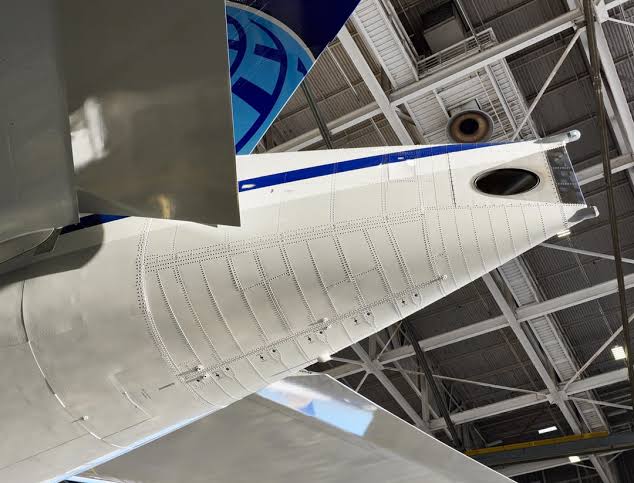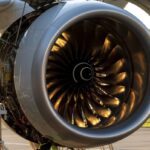
The Boeing 777, one of the world’s most successful wide-body aircraft, represents a marvel of modern aerospace engineering. Behind its impressive performance and reliability lies an intricate network of fasteners, with Boeing 777 rivets playing a crucial role in the aircraft’s structural integrity. This comprehensive guide explores the fascinating details of rivet count, weight specifications, and manufacturing processes that make the B777 a commercial aviation icon.
Boeing 777 Rivet Count: Engineering by the Numbers
The Boeing 777 rivet count is a testament to the aircraft’s complex construction. Modern Boeing 777 aircraft utilize approximately 1.5 to 2 million individual fasteners, including rivets, bolts, and specialized aerospace fasteners. While not all of these are traditional rivets, a significant portion consists of high-strength aluminum and titanium rivets distributed throughout the airframe.

Key Rivet Distribution Areas:
- Fuselage sections: 60-70% of total rivet count
- Wing structures: 20-25% of fasteners
- Empennage and control surfaces: 10-15% of rivets
- Interior framework: Remaining percentage
Boeing 777 Rivet Weight: Material Specifications and Impact
The Boeing 777 rivet weight contributes significantly to the aircraft’s overall mass distribution. Individual rivets in the B777 typically weigh between 0.5 grams to 15 grams, depending on their size and material composition.
Material Breakdown:
- Aluminum alloy rivets: 2024-T4 and 7075-T6 specifications
- Titanium rivets: Used in high-stress areas
- Steel rivets: Critical structural joints
- Composite fasteners: Modern variants incorporate advanced materials
The total weight of all rivets and fasteners in a Boeing 777 ranges from 8,000 to 12,000 pounds (3,600 to 5,400 kg), representing approximately 2-3% of the aircraft’s empty weight.
B777 Manufacturing Process: Rivet Installation and Quality Control
B777 manufacturing employs state-of-the-art automated riveting systems alongside traditional hand-riveting techniques. Boeing’s Everett facility utilizes advanced robotic systems capable of installing thousands of rivets per day with precision tolerances of ±0.001 inches.
Advanced Riveting Technologies:
- Automated Drilling and Riveting (ADR) systems
- Electromagnetic riveting for superior joint strength
- Laser-guided positioning for accurate placement
- Real-time quality monitoring systems
Boeing 777 Fasteners: Beyond Traditional Rivets
Modern Boeing 777 fasteners extend beyond conventional rivets to include:
- Hi-Lok fasteners: Two-piece fastening system
- Blind rivets: Access-limited installations
- Cherry rivets: Specialized aerospace applications
- Structural bolts: High-load bearing connections
Aerospace Rivet Standards and Boeing 777 Compliance
The Boeing 777 adheres to stringent aerospace rivet standards including:
- AS9100 quality management certification
- NADCAP accreditation for special processes
- FAA Part 145 repair station requirements
- International aviation safety standards
Boeing 777 Weight Distribution and Structural Engineering
Boeing 777 weight distribution relies heavily on optimal rivet placement and material selection. Engineers calculate precise load paths to ensure:
- Maximum structural efficiency
- Optimal weight-to-strength ratios
- Enhanced fatigue resistance
- Improved maintenance accessibility
Commercial Aviation Fasteners: Industry Standards
The commercial aviation fasteners industry continues evolving with the Boeing 777 leading innovations in:
- Composite-to-metal bonding technologies
- Corrosion-resistant coatings for extended service life
- Smart fasteners with integrated monitoring capabilities
- Sustainable manufacturing processes
Boeing 777 Specifications: Technical Details
Complete Boeing 777 specifications reveal the aircraft’s fastener requirements:
- 777-200: Approximately 1.5 million fasteners
- 777-300: Approximately 1.7 million fasteners
- 777-8/9 (777X): Advanced composite construction reduces rivet count
- Service life: 60,000+ flight cycles for critical fasteners
Aircraft Manufacturing Excellence
The Boeing 777’s success demonstrates how precise aircraft manufacturing processes, including rivet installation, directly impact operational reliability. Every rivet undergoes multiple quality checks ensuring compliance with aerospace standards.
Quality Assurance Measures:
- Non-destructive testing (NDT) methods
- Statistical process control monitoring
- Traceability documentation for each fastener
- Periodic inspection protocols
Future of Boeing 777 Fastener Technology
Emerging technologies in Boeing 777 fastener systems include:
- Shape memory alloys for self-adjusting connections
- Additive manufacturing for custom fastener production
- Integrated sensors for real-time structural monitoring
- Bio-inspired designs for enhanced performance
Engineering Excellence in Every Rivet
The Boeing 777’s impressive rivet count and weight specifications represent decades of aerospace engineering advancement. From the initial 1.5-2 million fasteners to the precise weight distribution of 8,000-12,000 pounds of hardware, every rivet contributes to the aircraft’s legendary reliability and performance.
Understanding these specifications provides insight into the complexity and precision required in modern commercial aviation manufacturing. The Boeing 777 continues setting industry standards for fastener technology, quality control, and structural engineering excellence.
For more detailed Boeing 777 specifications and aerospace fastener information, consult official Boeing documentation and certified aerospace engineering resources.
By Aeropeep Team





